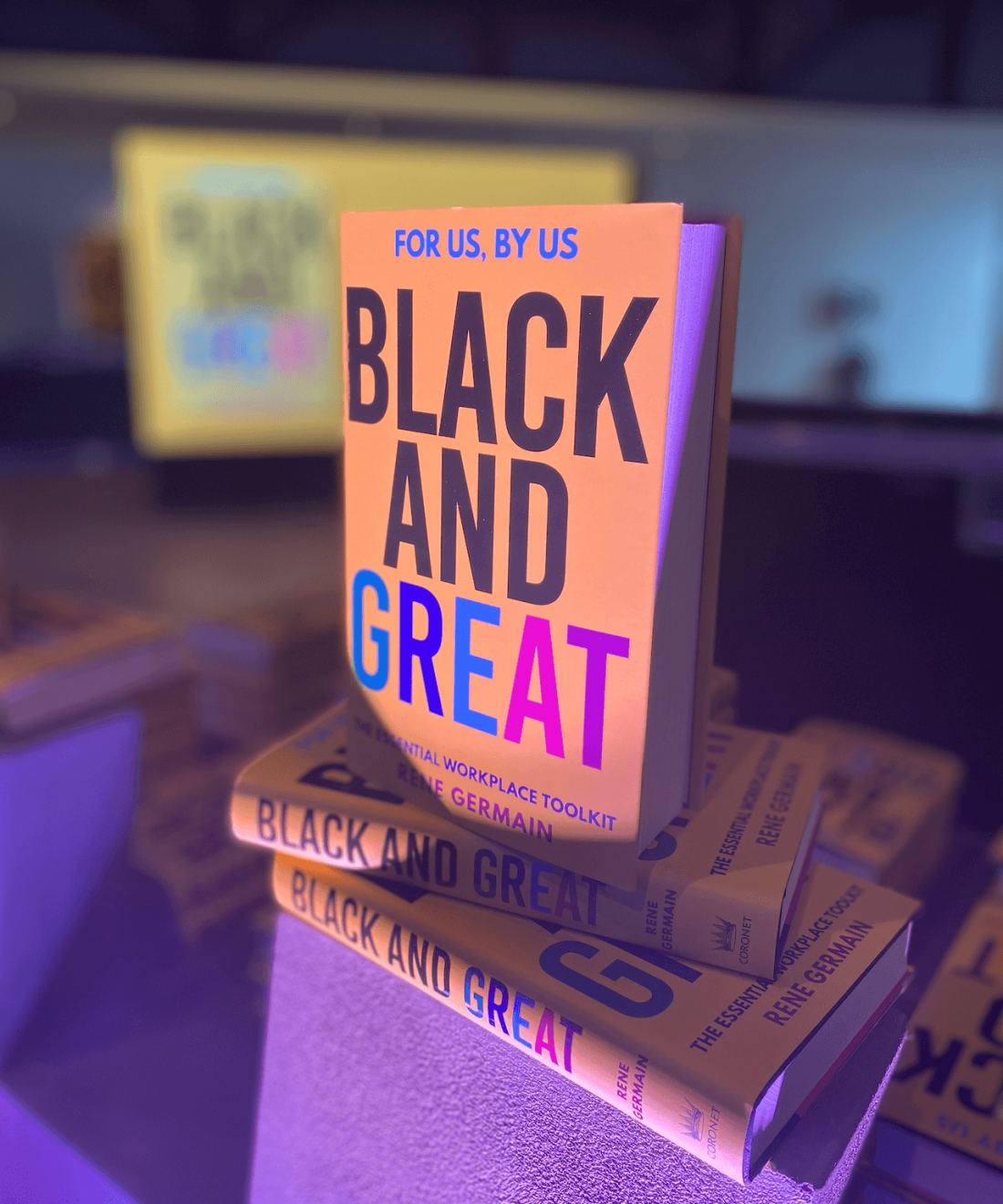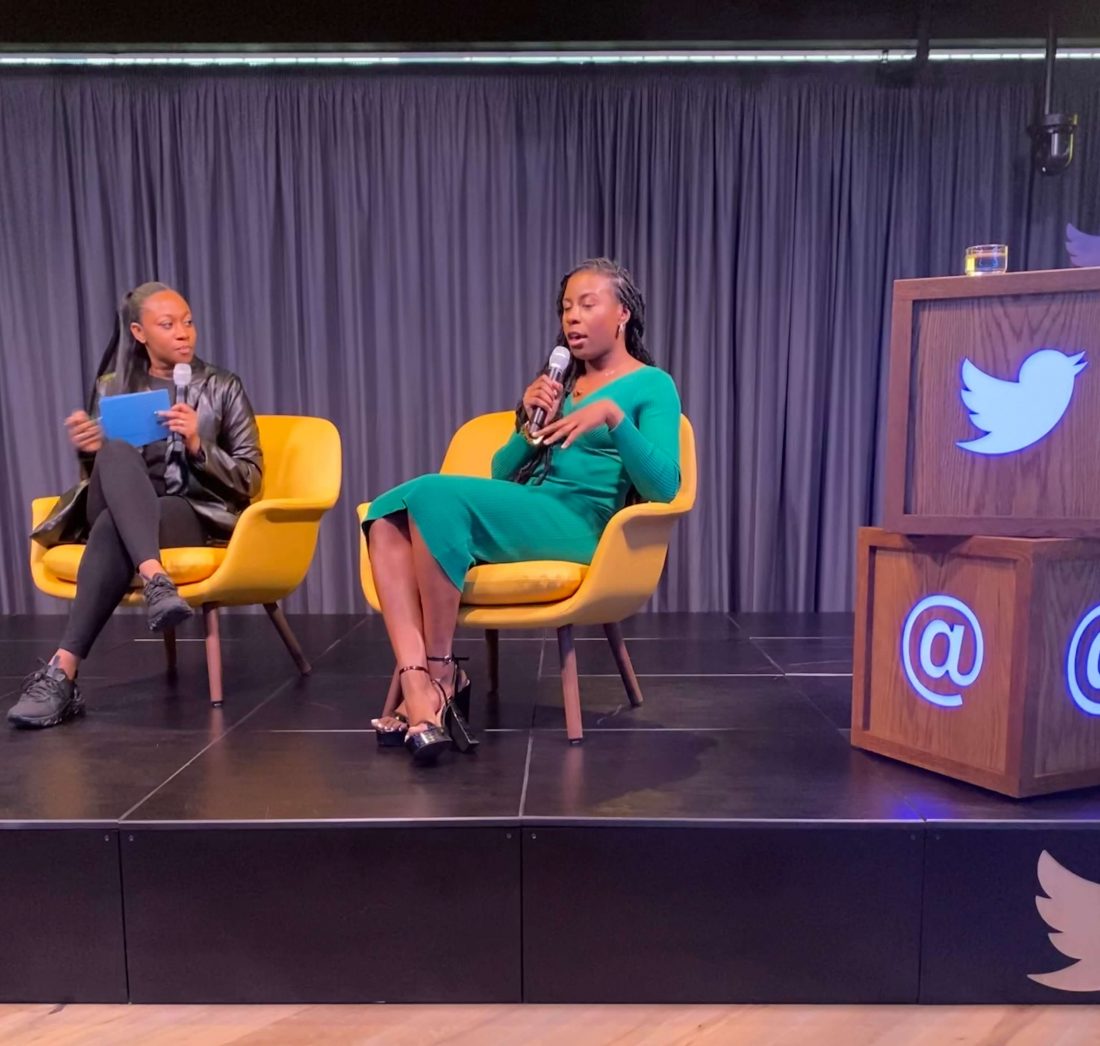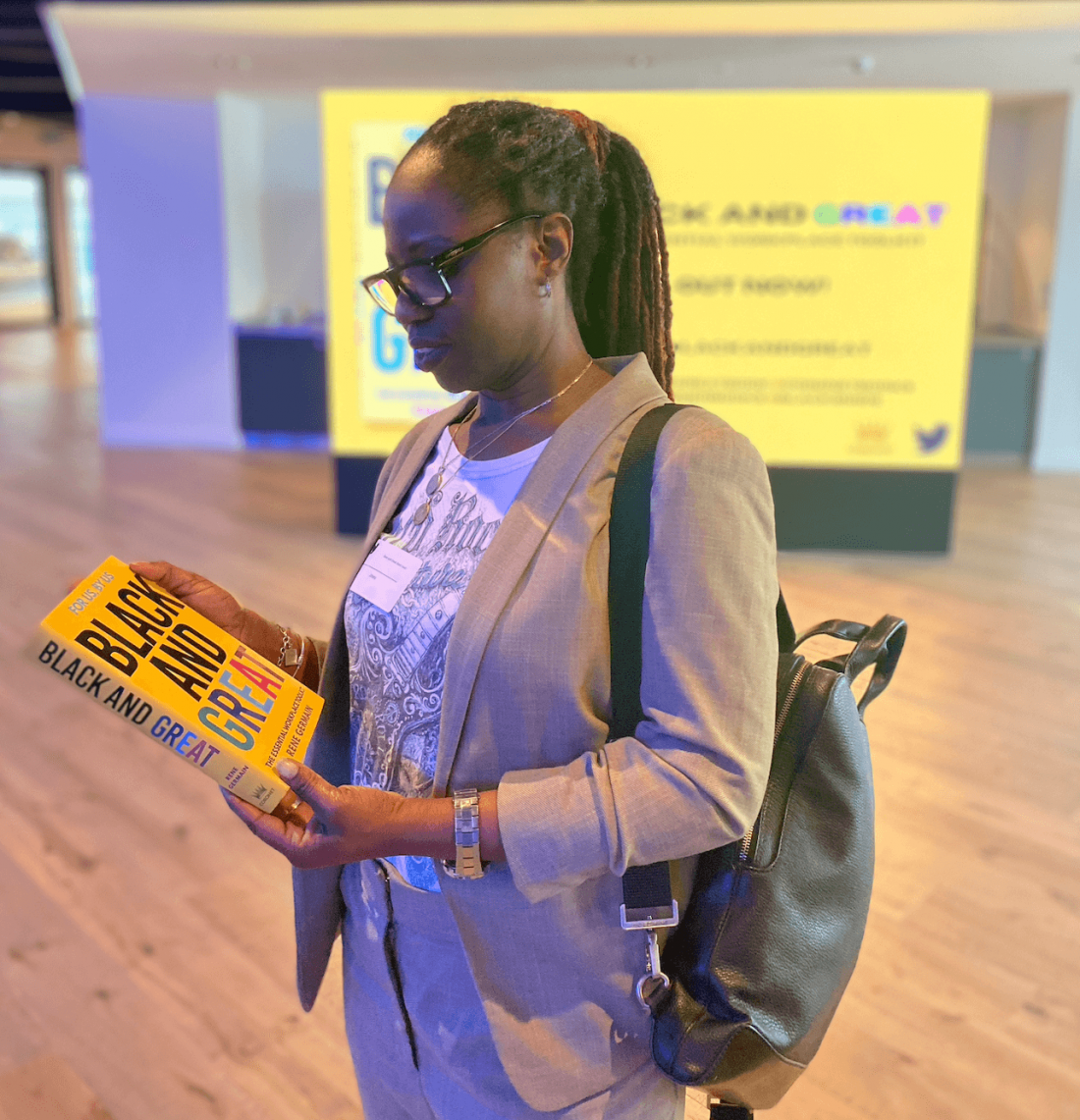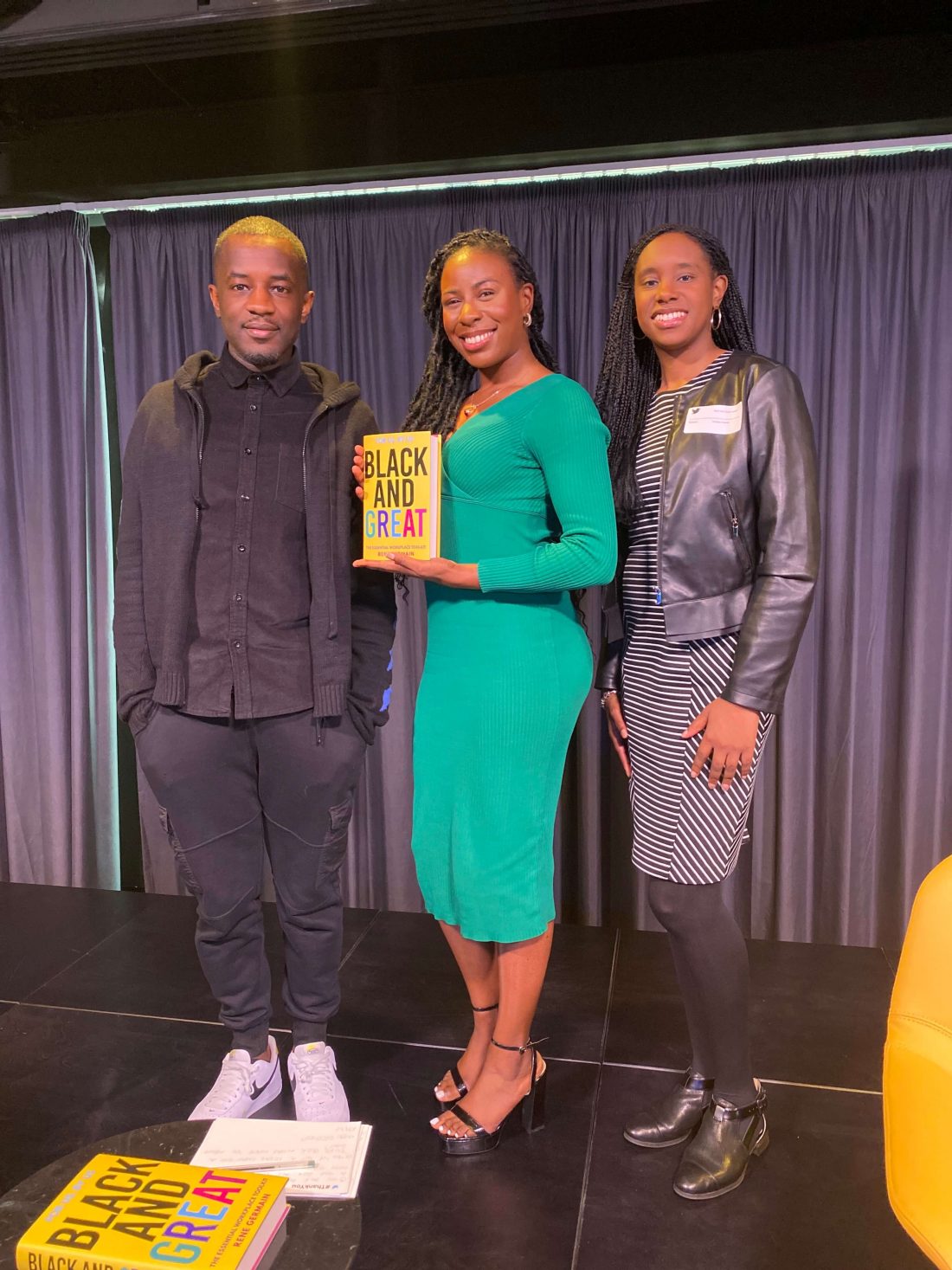Writer, speaker and now author Rene Germain has created “Black and Great”, an essential workplace bible for Black students and professionals.

Image credit: Melan Magazine
Rene Germain has harnessed her own work experiences along with the career journeys of more than 20 successful Black British professionals and entrepreneurs from TV, film, sport, media, law, medicine, academia, technology, finance and more.
A champion of the Black community, in 2017 Rene created the Instagram platform ‘Blk and Great’, to celebrate Black achievements and to highlight issues within the community. After also co-creating the viral hashtag #blackintheoffice as a safe space for Black British employees to anonymously share their experiences of racism and discrimination in the workplace, her debut book delivering guidance, support and mentorship is a natural next step.
Black and Great provides readers with honest and practical advice to thrive and carve out the career of their dreams, whilst embracing their Blackness. Featuring interviews and letters from some of the UK’s leading Black voices including Beverley Knight, Sir Steve McQueen, Trevor Nelson, Ashley Walters, Alexandra Burke and Gina Yashere, as well as several Black people who are captains of their industry. Two of these inspiring personalities, record label juggernaut Alex Boateng and senior woman in tech Dionne Condor-Farrell, joined Rene to share highlights at the official book launch hosted by Twitter Black Birds UK last month.

Image credit: Melan Magazine
Black and Great is essential reading for Black students and young professionals. Through the personal anecdotes and real-life examples, readers will gain exclusive insight into Rene’s and the book’s contributors, career highs and lows, how they bounced back from failure, plus the best and worst advice they have received over the years.
Black and Great also gives valuable and actional steps on how to overcome imposter syndrome, how to craft a personal brand, tips on salary negotiation, preparing for the future of work, navigating career pivots, and much more.
This book will help you learn how to thrive if you are ‘Living While Black’
During the official book launch, Rene gave so many valuable tips and insights about the book, but we’ve picked out a few highlights to share with you here.
Who is Black and Great for?
First and foremost, it’s for Black students and professionals. But its also for everyone who wants to understand more about the Black work experience. It was very important for me that Black students and professionals get access to my book. I recently spoke at a school, where there were predominantly Black students and I said to them “when I wrote this book, I prayed that it would get to people like yourselves”. This is because career books tend to not be targeted us. I feel that we need to have access to that knowledge so much earlier.

Image credit: Melan Magazine
On feeling like you’re the only one going through it
Sometimes when you are the only one in certain spaces it can feel like you are the only one. When I was interviewing for the book, I found that my contributors came from every industry or field that you can think of. Something I found interesting is that across those industries so many people’s experiences were similar and so that feeling of, ‘okay, I’m not the only one going through this or I’m not imagining things [being treated a certain way] is powerful. I feel like if I was younger and had a book like this in my hand, I think it would have helped me realise that so many experiences aren’t just unique to me. While that’s not necessarily a good thing, it helps to validate the feelings that one sometimes goes through.
Spotlight on the woman behind the resistance: Dr Shola Mos Shogbamimu
On the issue of Black representation and stereotyping
When it comes to Black representation, it’s common to see us [Black people] in one or two industries. So, at school, it’s either sports or music. When I was at school, I was very academically gifted, I excelled in most subjects and yet my teachers always still pushed the ‘Arts’ on me, music etc. I was really good in history, for eg, why were they not encouraging me to be an academic or an historian? Having this book, would have meant that I would have seen all these people doing really well in all these industries. That would have made me think, ‘oh, I can do this..’ so I think that’s really important.
On the systemic exclusion of Black people
Black students are five times more likely to be excluded than other pupils. We also know that Black students are more likely to be under predicted in grades. It’s not because Black students are not as academically bright as others, it’s down to this idea that we are not as smart as other pupils and so when you’re in that space or environment, where people are telling you that you are not good enough, you start to feel that you are not good enough or that you don’t belong. And that continues when you open books and you find that there are no Black people represented, you watch TV and there is no representation. Or actually, there might be stereotypical Black representation where Black people end up being the robber or the Black woman who is angry and clicking her fingers and flicking her weave. All of these can contribute to a feeling of not belonging and not feeling good enough and not thinking you can go very far.

On finding where you belong
A key learning that I have taken for myself through experiences in my career is really removing myself from spaces that make me feel like I don’t belong. One of the things that one of my book’s contributors said in his interview (Alex Boateng) rings true. He said: “Find where you are comfortable and immerse yourself in there”. And that resonates with me. It’s always going to be difficult sometimes in big organisations to feel like you belong, but you should try to find your community and your tribe and surround yourself with those people. Find those little pockets where you feel good and capable.
How NOT to lose friends and alienate people while being ‘woke at work’
On being your authentic self in the workplace
I personally don’t say to people “be your authentic self in the workplace”. That’s because I don’t think all workplaces are safe enough for people to be their authentic selves. We have to remember that some organisations are not built for us to thrive in. Some people’s workdays or experiences are simply about daily survival. So, what I say to people is “try to be authentic in a way that is comfortable to you”. That doesn’t mean not being yourself or putting on a different face. You can still be yourself but do it in a way that doesn’t put you at harm or make you feel uncomfortable.
Black and Great: The Essential Workplace Toolkit by Rene Germain: Buy it here.












